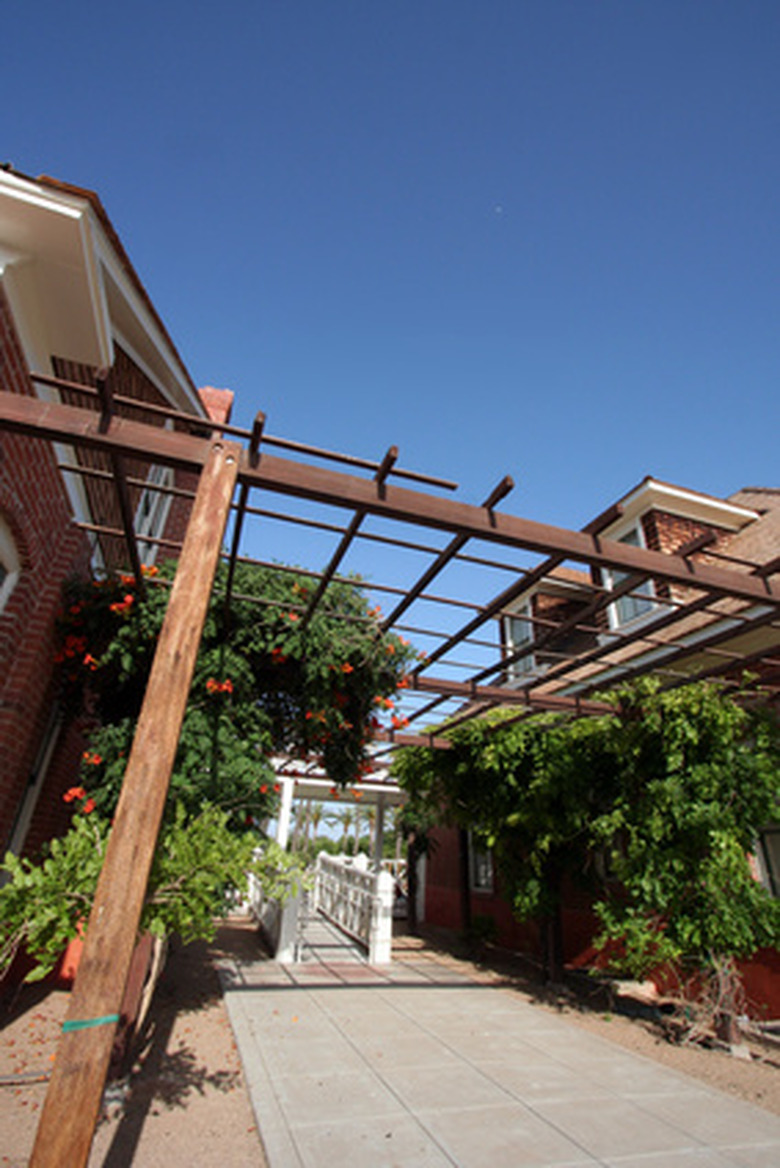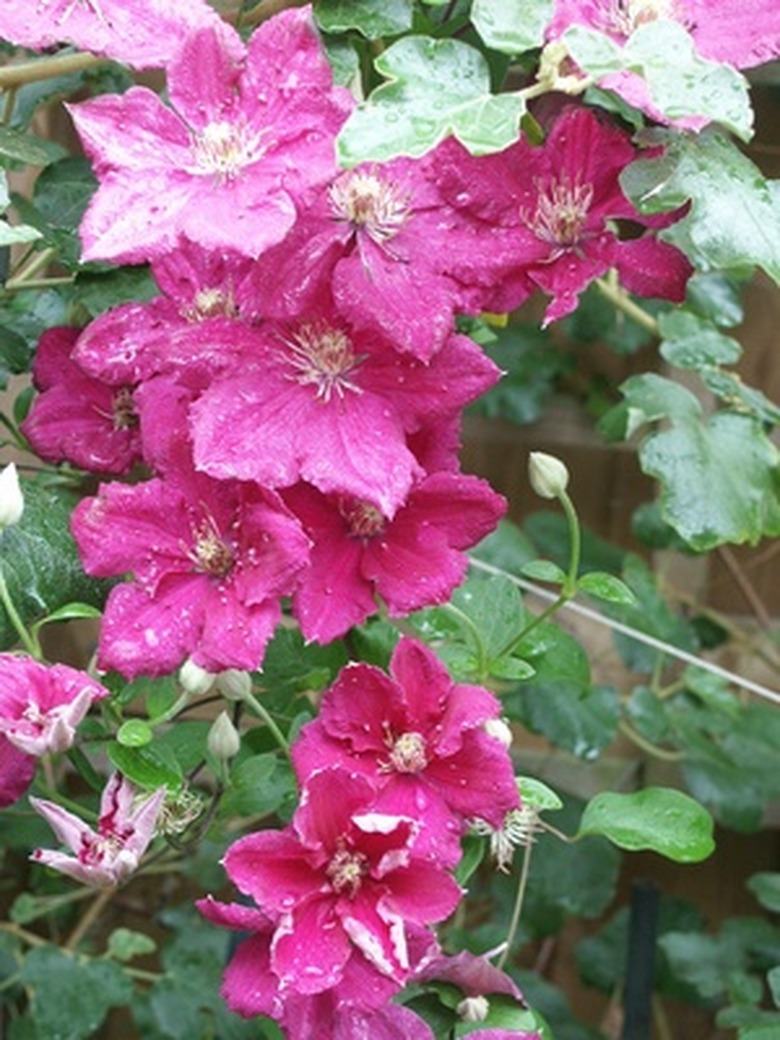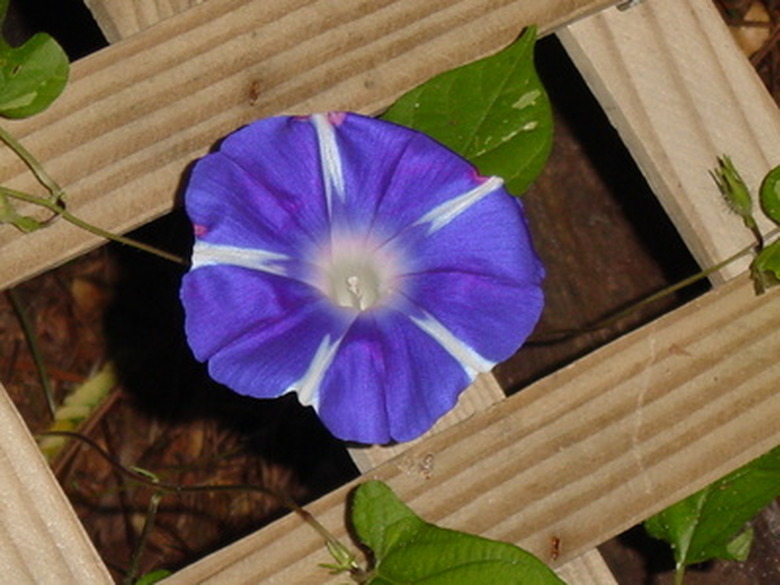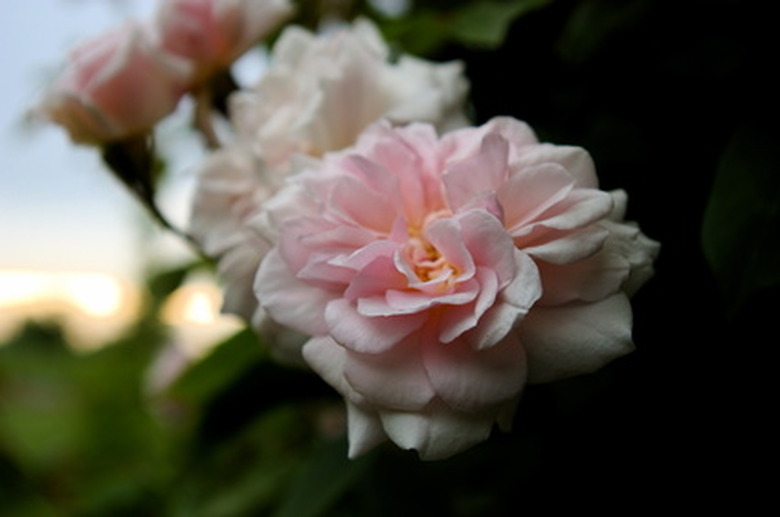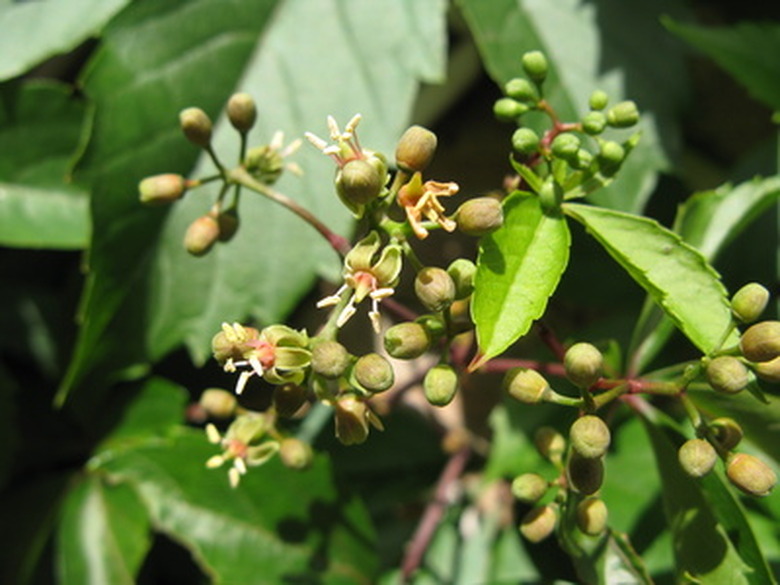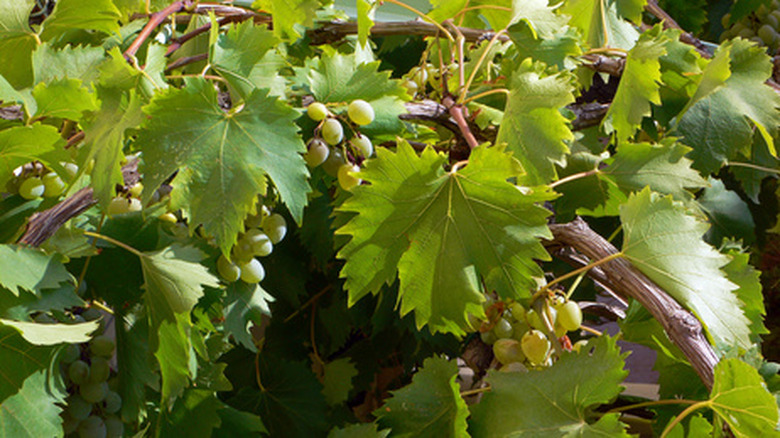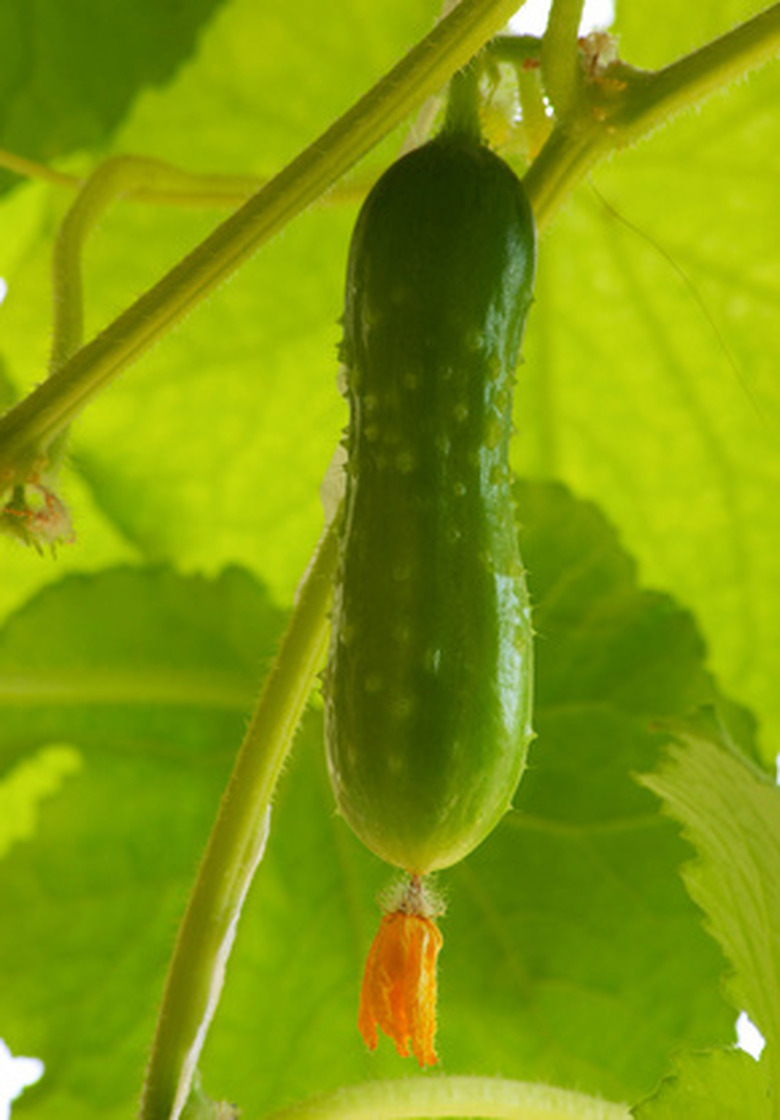What Are The Best Plants For A Trellis?
Although a trellis is lovely on its own in a landscape, most people cannot wait to plant a climbing vine to cover it with natural beauty. Many types of climbers and vines grow well on trellises, and some unexpected plants are also excellent trellis-growers. Depending on whether you want colorful flowers on your trellis, gorgeous foliage, edible berries, fruits or vegetables, or a different plant each year, there are likely several plants that will meet your needs.
Perennial Flowering Vines
The trumpet vine (Campsis radicans) is one of the best trellis plants, because it grows in a clinging fashion up to 30 feet each year and can thrive in most climates. With huge, showy reddish-orange flowers, the trumpet vine likes full sun and drier, poorer soils. Clematis vines are also great for growing on trellises, because they grip and climb the trellis with small tendrils, growing up to 12 feet every year. Clematis species have a wide range of flower colors to choose from and grow best in full sun to part shade. The Dropmore Scarlet honeysuckle (Lonicera x brownie 'Dropmore Scarlet') blooms in red flowers and doesn't die back in winter.
- Although a trellis is lovely on its own in a landscape, most people cannot wait to plant a climbing vine to cover it with natural beauty.
- Clematis vines are also great for growing on trellises, because they grip and climb the trellis with small tendrils, growing up to 12 feet every year.
Annual Flowering Vines
Some of the best annual trellis plants include the hyacinth bean (Dolichos lablab), which has pretty purple flowers and grows up to 15 feet long, and morning glories (Ipomoea tricolor), which have blue, purple or pink flowers and grow up to 10 feet. The cardinal climber (Ipomoea quamoclit), the black-eyed Susan vine (Thunbergia alata) and the moonflower vine (Ipomoea alba) are also excellent trellis climbers.
Climbing Roses
Climbing roses are great plants for trellis-growing, especially the hardy and re-blooming varieties. Although climbing roses usually won't grow canes longer than 8 to 10 feet, you can plant several of them to cover a trellis. You'll need to tie the canes to the trellis, however, because climbing roses don't have tendrils to grip onto the supports. Some good climbing roses for trellises include cultivars like Seven Sisters, William Baffin, Henry Kelsey and John Davis.
Non-Flowering and Evergreen Vines
Ivies (Hedera spp.) are usually the best non-flowering climbers for trellis-growing, especially if your trellis is in a shady location. Virginia creeper (Parthenocissus quinquefolia) and Boston ivy (P. tricuspidata) vines are also good choices for shadier trellises and can grow up to 50 feet long, creating a dense screen with lovely red foliage in the fall.
- Some of the best annual trellis plants include the hyacinth bean (Dolichos lablab), which has pretty purple flowers and grows up to 15 feet long, and morning glories (Ipomoea tricolor), which have blue, purple or pink flowers and grow up to 10 feet.
- Virginia creeper (Parthenocissus quinquefolia) and Boston ivy (P. tricuspidata) vines are also good choices for shadier trellises and can grow up to 50 feet long, creating a dense screen with lovely red foliage in the fall.
Fruit and Berry Climbers
Hardy kiwi and grape vines grow extremely well on trellis supports. The hop vine (Humulus lupulus) is also an interesting choice, the vine that produces the flowers used to make beer. Hardy kiwis and hops enjoy partial shade, while grape vines enjoy full sunlight.
Trellis Vegetables
Many different types of non-bush vegetables grow wonderfully on trellises, although they're useful to cover the trellis for only a season or two each year. Non-bush tomatoes, peas, cucumbers, pole beans gourds are all excellent trellis plant choices. Any other non-bush garden vegetable that produces fruits smaller than a soccer ball can be grown on a trellis as well, such as some melons, squash and miniature pumpkins. The scarlet runner bean (Phaseolus cocineus) also produces edible pods.
- Hardy kiwi and grape vines grow extremely well on trellis supports.
- Any other non-bush garden vegetable that produces fruits smaller than a soccer ball can be grown on a trellis as well, such as some melons, squash and miniature pumpkins.
